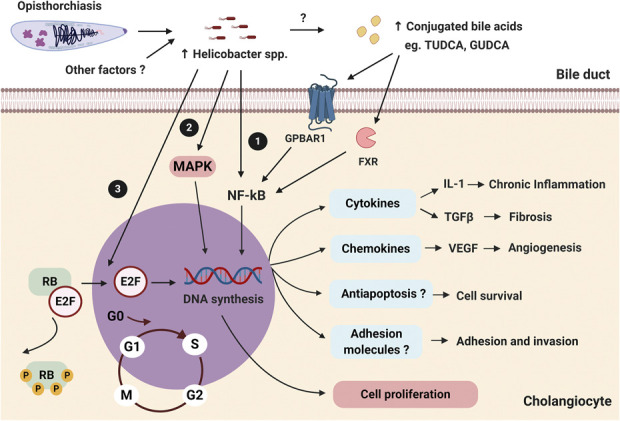Figure 1.

Microbiota alteration contributes to CCA carcinogenesis. Increased levels of commensal Helicobacter spp. during a parasitic OV infection result in chronic inflammation and abnormal cell proliferation of cholangiocytes. (1) Increased levels of conjugated bile acids (TUDCA and GUDCA) within the bile duct lumen from the increases in Helicobacter spp. lead to cholangiocyte inflammation through the NF-kB pathway. Proinflammatory cytokine IL-1, profibrotic cytokine TGF-β, and angiogenetic vascular endothelial growth factor are upregulated in cholangiocytes. (2) Helicobacter spp. can activate the mitogen-activated protein kinase pathway resulting in cholangiocyte proliferation. (3) Helicobacter spp. can dysregulate the cell cycle of cholangiocytes by phosphorylation of the RB, a tumor-suppressing protein, and then release transcription factor E2F resulting in abnormal cholangiocyte proliferation. E2F, E2 factor; GUDCA, glycoursodeoxycholic acid; NF-kB, nuclear factor-kappa B; OV, Opisthorchis viverrini; RB, retinoblastoma; TUDCA, tauroursodeoxycholic acid.
